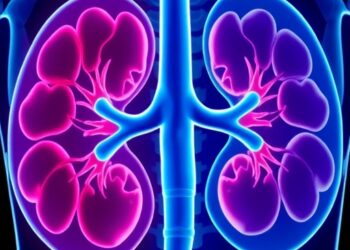KENNEDY SPACE CENTER (FL), August 15, 2024—The International Space Station (ISS) National Laboratory is collaborating with NASA on a solicitation for space-based research addressing some of the most significant diseases of our time—such as cancer, cardiovascular disease, and neurodegenerative disease. ISS National Lab Research Announcement (NLRA) 2024-09: Igniting Innovation: Science in Space to Cure Disease on Earth, released in partnership with NASA’s Biological and Physical Sciences division, is aimed at overcoming challenges hindering progress in disease prevention, diagnosis, and treatment. This NLRA will offer up to $4 million in total funding for an expected two to three awards for multiflight translational and transformative research and technology development.
KENNEDY SPACE CENTER (FL), August 15, 2024—The International Space Station (ISS) National Laboratory is collaborating with NASA on a solicitation for space-based research addressing some of the most significant diseases of our time—such as cancer, cardiovascular disease, and neurodegenerative disease. ISS National Lab Research Announcement (NLRA) 2024-09: Igniting Innovation: Science in Space to Cure Disease on Earth, released in partnership with NASA’s Biological and Physical Sciences division, is aimed at overcoming challenges hindering progress in disease prevention, diagnosis, and treatment. This NLRA will offer up to $4 million in total funding for an expected two to three awards for multiflight translational and transformative research and technology development.
Through this joint solicitation, the ISS National Lab and NASA seek projects that leverage the space environment to improve existing or develop new technologies that help solve health problems on Earth. Therapies for cancer and cardiovascular, immune, muscle and bone, and neurodegenerative diseases face obstacles that thwart scientific advancements and the translation of research findings into clinical applications. These challenges frequently overlap and share common elements, despite the complexity and variability of mechanisms within and among these diseases. Many of these challenges can be mitigated using accelerated disease models in microgravity through ISS National Lab resources.
This NLRA aims to foster collaboration between academia, industry, and government to develop innovative, commercially viable products and technologies to improve medical outcomes on Earth. Below are topics of particular interest for this NLRA:
- Enhanced Models to Study Disease Mechanisms: It is difficult to unravel the intricate dynamics of disease onset and progression and to identify effective therapeutic targets. Leveraging microgravity to improve cell-based models like tissue chips and organoids could deepen understanding of disease mechanisms and lead to personalized therapies.
- Population and Disease Heterogeneity: Population and disease heterogeneity pose significant obstacles to drug Variability in genetic and demographic factors, such as age and sex, leads to differing treatment responses across individuals. Genetic and phenotypic diversity in diseases themselves must also be considered.
- Drug Screening and Development: Microgravity enables high-throughput drug screening in 3D cell cultures and tissue models that more accurately simulate the human body. Innovative approaches and technologies to identify preclinical drug candidates are needed to accelerate development of new, more effective therapeutics.
- Drug Delivery: Innovation in drug delivery, such as nanotechnology and targeted therapies, is vital to enhance treatment precision and reduce side effects. Additionally, the absence of well-defined biomarkers complicates treatment selection, and innovative strategies for biomarker discovery are needed to improve treatment outcomes.
- Drug Resistance and Toxicity: Drug resistance poses significant challenges in treating many diseases. For example, cancer cells can become resistant due to genetic mutations or changes in signaling pathways, decreasing drug efficacy. Additionally, the toxicity of treatments like chemotherapy requires careful balancing of efficacy and adverse effects.
Last month, at the annual ISS Research and Development Conference in Boston, the ISS National Lab and NASA announced five projects selected through the inaugural Igniting Innovation NLRA, which sought to harness the unique space environment to advance cancer research to benefit patients on Earth.
“We are proud to collaborate again this year with NASA’s Biological and Physical Sciences division on this important initiative to bring the transformative power of space-based inquiry into the fight against diseases that touch all of our lives,” said ISS National Lab Chief Scientific Officer Michael Roberts. “Our inaugural solicitation in 2023 resulted in the selection of five innovative concepts to leverage microgravity and the space station to benefit patients on Earth. We look forward to enabling access to even more ideas that ignite innovation and fuel research and development for the benefit of humanity.”
“Space-based research has a long history of contributing to advancements on Earth,” said Lisa Carnell, director of NASA’s Biological and Physical Sciences division. “Continuing the Igniting Innovation solicitation could contribute to the next big leap in disease therapies. We are excited to collaborate with the ISS National Lab on this endeavor to help address some of the biggest health challenges facing the world today.”
This research announcement will follow a three-step proposal submission process (Step 1A: Concept Summary, Step 1B: Technology Roadmap, and Step 2: Full Proposal). Step 1A: Concept Summaries must be submitted by end of day on September 26, 2024.
Those interested in learning more about this research announcement can register for a webinar hosted by the ISS National Lab on August 22, 2024, at 1 p.m. EDT.
For more information on this funding opportunity and how the space-based environment can accelerate research and technology development for the benefit of life on Earth, please visit the official solicitation page.
Download a high-resolution photo: Igniting Innovation 2024




